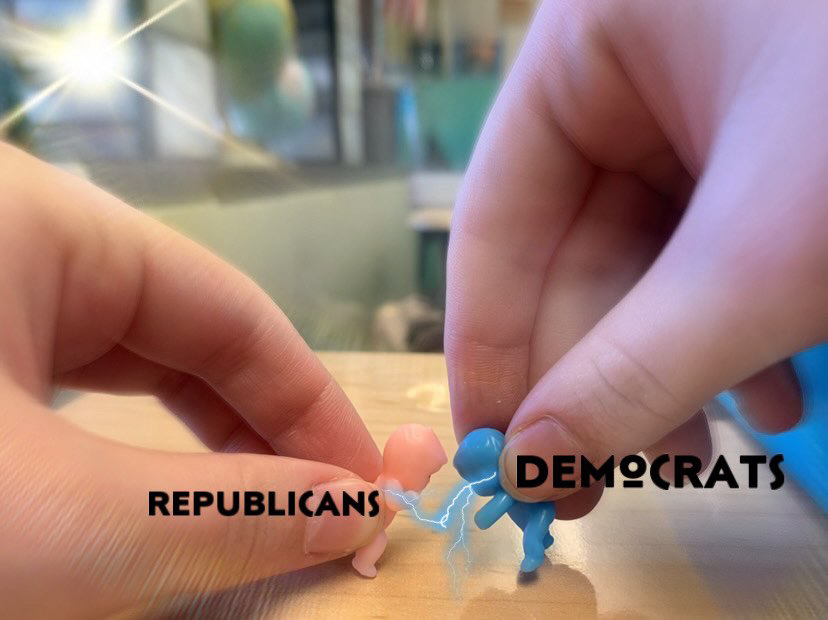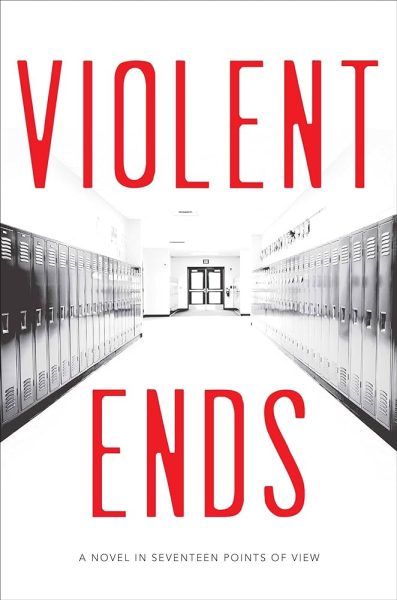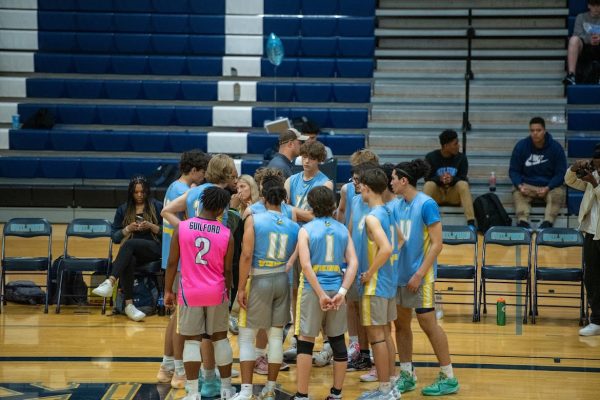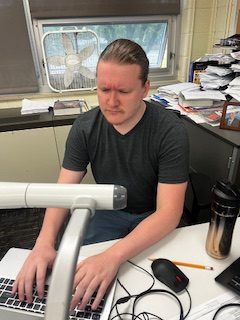Don’t like politics? Here’s why you should still get out and vote
Politics can be terrifying. There’s nothing like having a serene Thanksgiving dinner only for drunk Uncle Frank to spark the inevitable family crisis by saying something along the lines of “Everyone should just go back to where they came from.” Or, vice versa, crunchy Aunt Linda goes on a tangent about how “Vaccines are bad because they aren’t natural,” and how we should “Print more money.”
Over the last few decades, politics have grown more polarized than ever before. Today, Democrats and Republicans are farther apart ideologically than any time in the past 50 years. There are many likely reasons for this phenomenon, with some being the parties increasing focus on social issues (Religion, LGBTQ+ rights, racial issues, etc.), the influence of mass media, and the shifting of party values.
Naturally, many people shy away from politics because of how controversial it can be. It’s unpleasant having difficult conversations with family and consuming lots of stressful media. Many of these people who become overwhelmed lose sight of the importance of voting or even staying updated on the news.
Younger generations in particular avoid voting compared to older generations, despite having the most power.
“A lot of them don’t educate themselves on what is going on in the community,” said Silvia Carrillo, an eighteen-year-old registered voter in the City of Rockford. “It’s especially important for the younger generation to get their voices out there.”
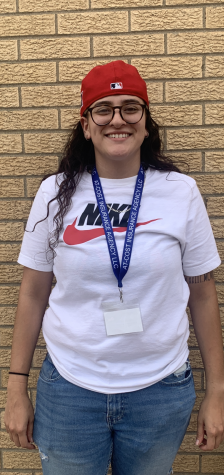
Voter turnout is currently highest among people ages 65 to 74 with 76.0% of these people voting and the percentage was lowest with people ages 18 to 24, only 51.4% vote. (United States Census Bureau, 2021).
“I decided to register to vote because we have power in our hands to get our opinions and our voices out there,” said Carrillo.
Gen Z, Millennials, and younger generations reached 166 million people in the U.S. as of July 2019. Boomers, Gen X, and older generations, however, makeup 162 million people. (Frey, 2020). Because the younger generations make up such a large proportion of the country compared to older generations, they have the most potential to change the country if they all vote.
“Young people have the ability to determine their future through voting,” said Mel Champion, a member of Women’s March Rockford. “Not only their future but the future of generations to come”
There are real problems created by older generations such as climate change and cuts to social security that Generation Z will need to fix. The longer Gen Z waits, the worse the problems will become. Our planet is getting hotter each year, mainly due to increasing carbon emissions from fossil fuels being burned. We are already facing more intense natural disasters but if global warming continues at this rate up to the year 2030, it could be irreversible.
The consequences that today’s young people will face include droughts that lead to crop and food shortages, extinction of crucial species in our ecosystem, rising sea levels from melting glaciers, even more severe weather events, and our resources will be used up significantly faster.
Additionally, there isn’t enough money being paid into social security, mainly due to more people retiring than working. Because of this, social security is projected to be cut by 23 percent in twelve years and it will continue to drop, thus putting younger generations at risk of poverty when they retire. (Brockman, 2022).
Young people need to get out and vote whether they are politically affiliated or not to protect themselves from problems like these. If you care about these issues but feel like your vote won’t make a difference in the sea of millions of votes, consider one of the closest elections in U.S. history.
In the year 2000, Presidential Candidate Al Gore narrowly lost the electoral college vote to George W. Bush. Bush won by such a small margin that it called for a recount. Ultimately, Bush won by 573 votes.
If Al Gore had received just 600 more votes, the outcome of the election and today’s government policies could be very different.
Because each vote holds so much weight, it’s crucial for voters to educate themselves on the candidates running and their plans.
The most effective way to get accurate information on candidates and to make a good decision on who to vote for is to look for unbiased sources. It is easy to get caught up in inflammatory statements and opinions when tuning into far left or far right media.
For example, avoid heavily biased sources with questionable records like Natural News, Fox News, Info Wars, The Blaze, and US Uncut. Some examples of news sources with reliable information and limited bias, on the other hand, are BBC, Forbes, NPR, New York Times, The Wall Street Journal, News Week, and News Nation. A source can still be effective if it is somewhat liberal or conservative leaning if it is fact checked and well reviewed.
Be sure to tune into candidate speeches and debates as well so that you can get a good idea of their opinions, goals, and respect towards other candidates. Avoid voting for candidates that use logical fallacies such as the ad hominem (attacking a characteristic of a person rather than countering their argument), slippery slope (claiming that that one event is guaranteed to follow another), and the strawman (changing or exaggerating your opponent’s argument).
It is also important to consider which people are the most strongly impacted by political decisions. Racial minorities, LGBTQ+ people, women, and certain religious minorities are particularly vulnerable.
“My concerns are that many older white men already have a set bias against minorities,” said Daizsa McGrone, a GHS sophomore. “Some have a good mindset but a lot of them are still stuck in the old days when we weren’t equal to them. Voting for people with the right ideas protects the way that minorities are treated overall.”
The best politicians, regardless of their political party, make decisions that will benefit everyone in a country rather than just one race, one class, or one gender. There are many laws that people take for granted that can be changed quite quickly.
“We could lose our voices tomorrow if the wrong people win. Roe V. Wade shows how easily that could happen,” said Karen Hoffman, Alderwoman of the 8th ward for the City of Rockford. “Everything we fought for we could lose. These rights are not God given.”
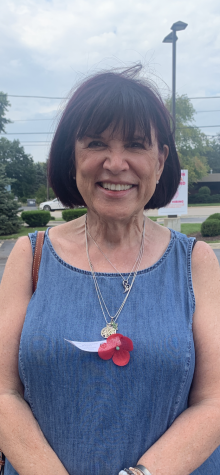
Roe v. Wade was a decision made by the U.S. Supreme Court that ruled that the Constitution of the United States conferred the right to have an abortion. On Friday, June 24th, the U.S. Supreme Court overturned this decision and thus halted 50 years worth of protection for women’s reproductive rights.
Another major Supreme Court decision, Obergefell v. Hodges that guarantees same-sex couples the right to marry, is potentially at risk. Justice Clarence Thomas has called for Obergefell to be revisited.
Now is a more important time than ever to get out and vote.
“I think it’s awkward for people,” said Sue Theden, Co-President of League of Women Voters of Greater Rockford. “They don’t know where to go but making it a habit is important. A lot of local and federal votes do make a big difference.”
If you live in the City of Rockford and are or will turn 18 before or on November 8th, you can register to vote. You can register and vote at Rockford Board of Elections at 301 South 6th Street or any early voting site now through November 7th. Visit this link for more information. https://voterockfordil.gov/for-voters/early-voting
“Voting is for everyone,” said Theden. “We all have needs, perspectives, and experiences. We want politics to work for all different genders, identities, and races.”
https://fortune.com/2022/10/05/gen-z-versus-millennials-boomers-driving-most-workplace-trends/
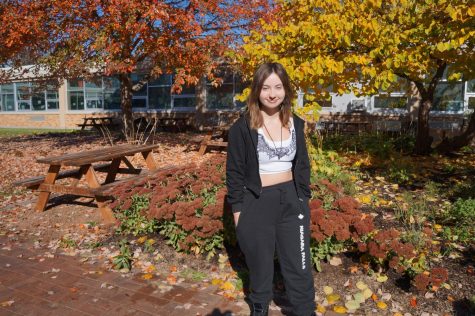
I joined Guilford’s newspaper team to enhance my writing skills so that I have a better understanding of different literature styles and editing techniques....


